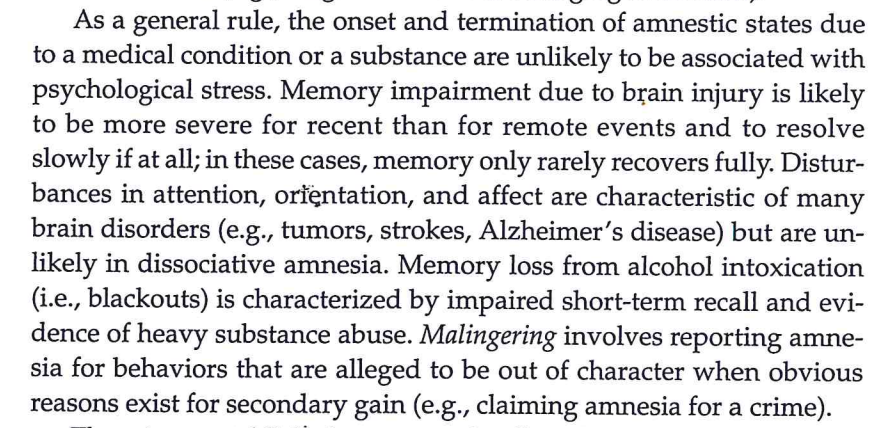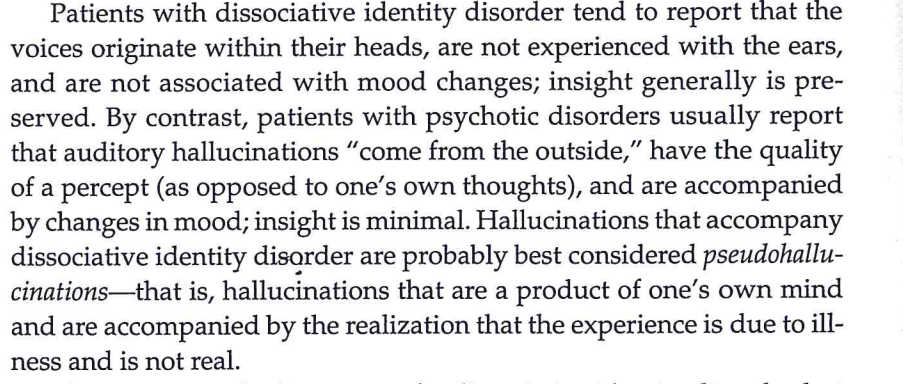Dissociative Disorders
Depersonalization
Depersonalization disorder is characterized by feelings of detachment from oneself or one’s environment. Transient depersonalization may occur during periods of severe stress, but this disorder is defined by persistent depersonalization that causes social/occupational distress.
Treatment is symptomatic for associated depression (SSRIs) and anxiety (SSRIs, benzodiazepines, etc.).
Dissociative
Dissociative amnesia is an inability to recall memories due to psychiatric dissociation, usually surrounding a stressful event. The classic description is a patient who has completely intact memory except amnesia of a traumatic rape experience.
Dissociative fugue is characterized by reversible amnesia for personal identity associated with unplanned travel or wandering, usually occuring in stressful situations such as war or personal losses. The classic example is a patient who wakes up in an unfamiliar place with no recollection of who they are or how they got there.
Note: As of DSM-5, dissociative fugue is a subtype of dissociative amnesia, not a separate diagnosis.
After recovery from fugue, previous memories usually return intact; however, during the fugue episode, there is complete amnesia.
Dissociative identity disorder (multiple personality disorder) is defined by 2 or more distinct personalities within a single patient. The classic description is a patient who receives photos of his/herself doing things the patient doesn't remember, with people the patient doesn't know.
Most patients have experienced prior trauma, especially child abuse.

Dissociative identity disorder has the worst prognosis of all dissociative disorders.
Treatment of all dissociative disorders involves psychotherapy. Sodium amobarbital or lorazepam may help patients talk more freely in an interview.


Last updated